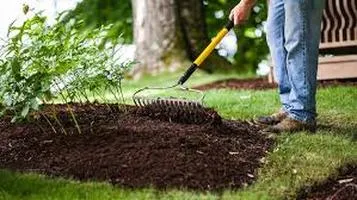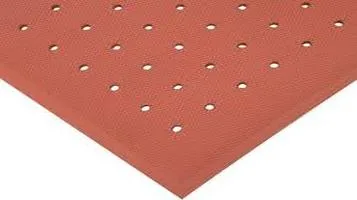Mulch and Compost: The Unsung Heroes of Gardening
Mulch and compost are essential components of sustainable gardening and landscaping practices. Mulch is a protective layer spread on the surface of the soil, made from materials like wood chips, straw, or bark. Its primary functions include conserving soil moisture, suppressing weed growth, regulating soil temperature, and enhancing the visual appeal of gardens. Compost, on the other hand, is decomposed organic matter, rich in nutrients, used to enrich soil fertility. It is made from kitchen scraps, yard waste, and other biodegradable materials through the process of decomposition. Compost improves soil structure, promotes healthy root development, and provides essential nutrients to plants. Together, mulch and compost foster a healthy ecosystem, reduce waste, and contribute to sustainable plant growth and soil health.

Gardening enthusiasts and professionals alike often extol the virtues of mulch and compost, and for good reason. These two elements, though simple in concept, are foundational to creating and maintaining a thriving garden. In this review, we'll delve into the distinct benefits of mulch and compost, their differences, and why they are indispensable in the world of horticulture.
Mulch: The Protective Blanket
Mulch, at its core, is a layer of material applied to the surface of the soil. It can be organic (such as wood chips, straw, or leaves) or inorganic (such as gravel or plastic sheeting). Each type of mulch serves different purposes, but the primary benefits of mulching remain consistent across the board.
1. Moisture Retention: One of the most significant advantages of mulch is its ability to retain soil moisture. By covering the soil, mulch reduces evaporation, ensuring that plants have a consistent water supply. This is particularly beneficial during hot, dry spells or in regions where water conservation is crucial.
2. Weed Suppression: Mulch acts as a natural barrier against weeds. By blocking sunlight, it prevents weed seeds from germinating and growing. This reduces the need for chemical herbicides and makes garden maintenance less labor-intensive.
3. Soil Temperature Regulation: Mulch helps to moderate soil temperatures. In the summer, it keeps the soil cooler, while in the winter, it acts as an insulating layer, protecting plant roots from extreme cold. This creates a more stable environment for plants to thrive.
4. Erosion Prevention: Mulch can significantly reduce soil erosion caused by wind and rain. By providing a protective cover, it helps maintain soil structure and prevents the loss of valuable topsoil.
5. Aesthetic Appeal: Beyond its functional benefits, mulch adds a polished, finished look to garden beds and landscapes. The choice of mulch can complement the overall design of a garden, enhancing its visual appeal.
Compost: The Nutrient Powerhouse
Compost, often referred to as "black gold" by gardeners, is decomposed organic matter that enriches soil. It is created through the natural breakdown of organic materials like kitchen scraps, grass clippings, and leaves. Compost is a powerhouse of nutrients and offers numerous benefits to the garden ecosystem.
1. Soil Enrichment: Compost is rich in essential nutrients such as nitrogen, phosphorus, and potassium, which are vital for plant growth. It also contains micronutrients that might be lacking in synthetic fertilizers. Incorporating compost into the soil improves its fertility, leading to healthier, more robust plants.
2. Improved Soil Structure: Adding compost to soil enhances its structure. It helps sandy soils retain moisture and nutrients, while it improves drainage in clay soils. This balanced soil structure promotes better root development and overall plant health.
3. Microbial Activity: Compost introduces beneficial microorganisms to the soil. These microbes play a crucial role in breaking down organic matter, making nutrients more accessible to plants. They also help suppress soil-borne diseases and pests, creating a healthier growing environment.
4. pH Balance: Compost can help balance soil pH, making it more neutral. Whether your soil is too acidic or too alkaline, compost can bring it closer to the ideal pH range for most plants.
5. Sustainable Practice: Using compost is an environmentally friendly way to recycle organic waste. Instead of sending kitchen scraps and yard waste to the landfill, composting turns them into a valuable resource for your garden.
Mulch vs. Compost: Understanding the Differences
While both mulch and compost offer significant benefits, it's important to understand their distinct roles in gardening.
- Application: Mulch is applied to the surface of the soil, while compost is typically mixed into the soil. Mulch primarily acts as a protective barrier, whereas compost is a soil amendment that improves soil health from within.
- Function: Mulch focuses on moisture retention, temperature regulation, and weed suppression. Compost, on the other hand, provides essential nutrients and improves soil structure.
- Duration: Mulch tends to break down more slowly than compost. Organic mulches will eventually decompose and contribute to soil organic matter, but this process takes longer. Compost, being already decomposed, offers immediate benefits to the soil.
Conclusion
In the realm of gardening, mulch and compost are truly unsung heroes. They work in tandem to create a healthy, sustainable, and productive garden environment. Mulch provides protection and stability, while compost enriches and revitalizes the soil. Together, they form the cornerstone of successful gardening practices.
Investing time and effort into mulching and composting pays off in spades. Not only do they promote healthier plants and higher yields, but they also contribute to a more sustainable and eco-friendly approach to gardening. Whether you're a seasoned gardener or a novice, incorporating mulch and compost into your gardening routine is a step towards creating a thriving, resilient garden that will reward you for years to come.






